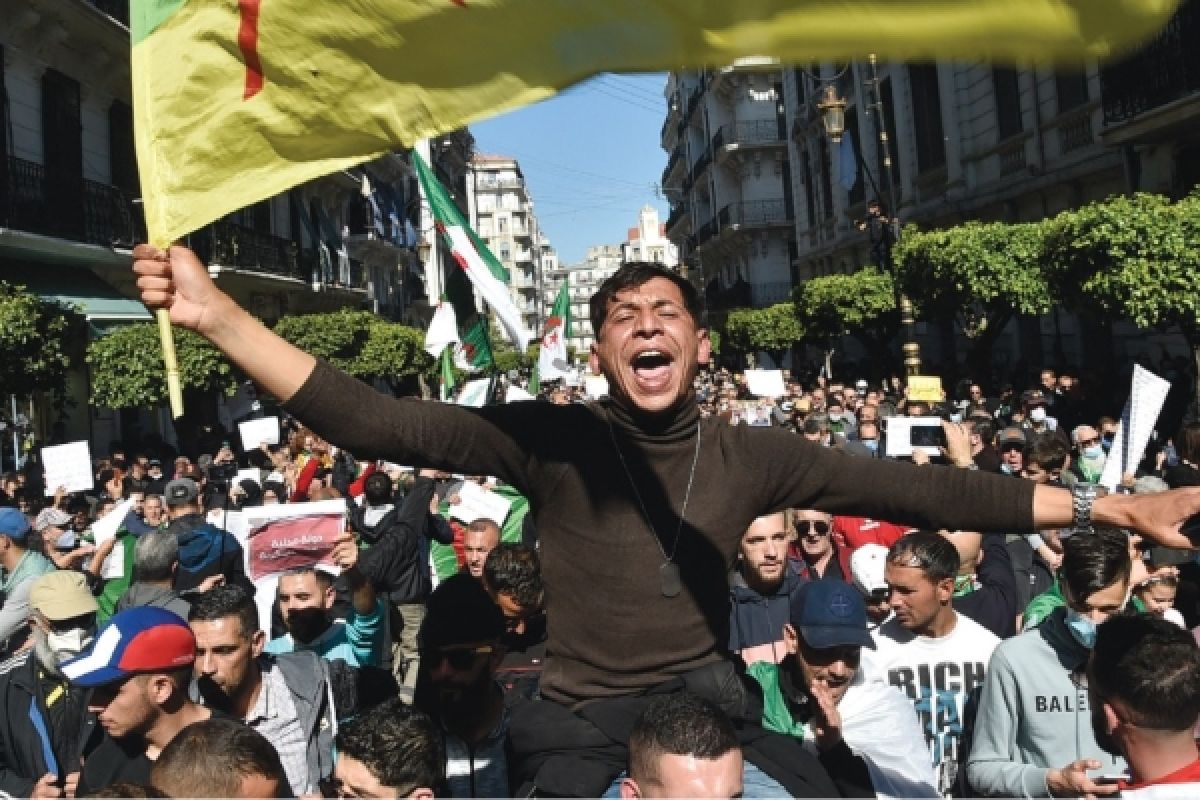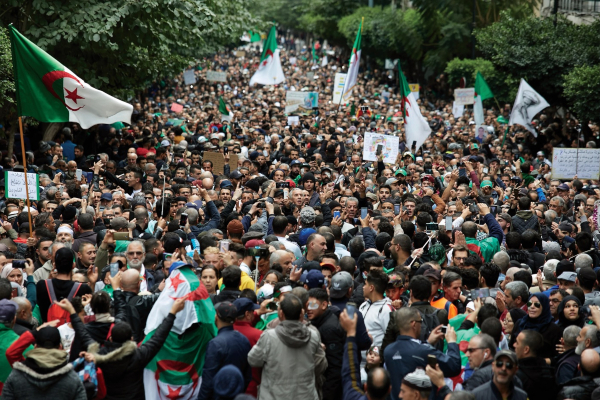Algerian Berbers fight for rights

Algeria is braced for a summer of discontent as members of the minority group protest historic injustices. By Zachary Ochieng.
The end of Ramadan is expected to bring a return to anti-government protests across Algeria as the country prepares for municipal elections slated for June 21.
The North African state had been gripped by anti-government rallies in the run-up to the Islamic holy month, as members of the Hirak movement marked the 20th anniversary of a bloody massacre of Berbers in the Arab-majority state.
For decades, Berbers – or Imazighen, as they call themselves – have fought for linguistic and cultural recognition in Algeria and across North Africa.
In April 2001, an estimated 126 people were killed and a further 5,000 injured during violent clashes between Algerian security forces and Berbers marking the 20th anniversary of the so-called ‘Berber Spring’ of 1980.
Resentment over the massacre and the treatment of Berbers in the country has been growing in recent years, with Algeria’s pro-democracy Hirak movement leading weekly street protests on the issue.
The group, which called for an amnesty on protests during Ramadan, saw many of its supporters arrested in March and April.
Abdy Yeganeh, a former British diplomat and Policy Director at the non-profit Independent Diplomat Inc, believes the Berbers have legitimate grievances that the Algerian state needs to address if it hopes to counter Hirak.

‘Let’s not forget the roots of the movement are much deeper as evident by the ‘Berber Spring’ in 1980,’ Abdy told NewsAfrica.
‘These issues are therefore long-standing. The Hirak movement that swept across Algeria in 2019 was a catalyst that allowed the Berbers to put their legitimate cause back on the discourse in Algerian politics.’
Berbers are the descendants of the pre-Arab inhabitants of North Africa.
They live in scattered communities across Morocco, Algeria, Tunisia, Libya, Egypt, Mali, Niger and Mauritania, and speak various Amazigh languages, which are related to ancient Egyptian.
With the Berbers spread across such a vast region, Bruce Maddy-Weitzman, Senior Fellow at the Moshe Dayan Center for Middle Eastern and African Studies at Tel Aviv University, believes solving Berber rights is crucial for regional stability.
He said: ‘The emerging ethnic identity combined with new ways of imagining collective belonging, namely tribal, national and religious, appeals to many disenfranchised Berber youths and is rapidly being consolidated as a major ingredient in the future relations between the state and society in North Africa.’
In Algeria, for instance, years of Berber agitation for greater recognition of their language, music and culture culminated in rioting, and dozens of deaths in 2001.
The government amended the constitution in October 2001 to make Berber a ‘national’, but not an ‘official’ language.
In 2016, the former president Abdelaziz Bouteflika amended the constitution to define Amazigh as an ‘official language’ of the state, placing it on the same level as Arabic.
In reality, though, the language is only taught in schools in the eastern region of Kabylie.
The Independent Diplomat’s Abdy believes it is important to address the root causes of the Berbers’ sense of marginalisation.
For example, there have been decades of under investment in education, health and development by the Algerian state in the Berber communities.
He said listening to Berber community leaders is a first step in addressing such under investment, as well as the cultural protection the Berbers have sought for the Amazigh language.
Some hardliners have called for an independent homeland for the Berbers. However, there is limited political will on the international stage when it comes to self-determination causes. A case in point is the neighbouring situation of Western Sahara.
Despite a UN agreement to allow the Sahrawi people the right to determine their future, Morocco has yet to approve a referendum over its occupation of the region.
‘The risks are evident with such an approach,’ said Abdy. ‘Therefore, the issue of inclusion and safeguarding of Berber rights should be paramount for the Algerian government.'
He added: ‘What is clear is that the Berber movement will continue and could strengthen the longer their legitimate demands are ignored. This not only would impact domestic stability but could also lead to regional overspill given the overlapping issues of the Berber across the region.’



